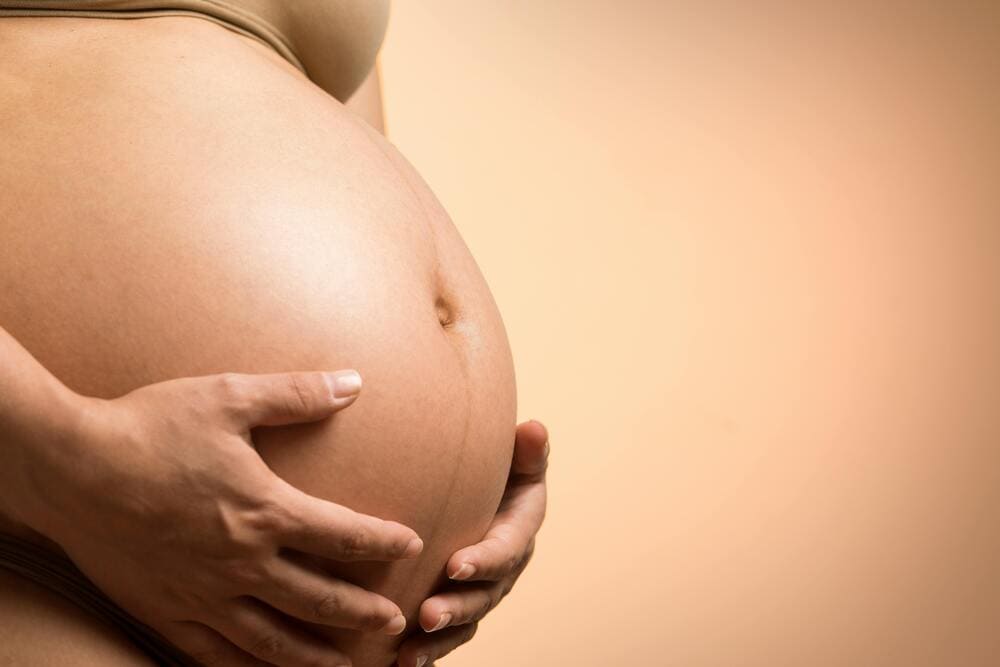
Matcha during pregnancy: is it safe to consume?
Sébastien GELLECan you drink matcha while pregnant? The answer is yes, but in moderation and with a few essential precautions. Matcha is a valuable beverage for many active women looking to balance energy and well-being on a daily basis. During pregnancy, it can still be part of your routine, provided you're familiar with its composition, effects, and the correct amounts.
In this article, we will explore together the benefits and risks associated with matcha during pregnancy , give you clear guidelines for consumption and answer the most frequently asked questions from expectant mothers.
Caffeine and Pregnancy: A Key Point to Know
When discussing matcha during pregnancy, the first question always concerns caffeine. Health Canada recommends limiting caffeine consumption to a maximum of 300 mg per day for pregnant women . The EFSA (European Food Safety Authority) sets the limit even lower, at 200 mg/day.
One gram of matcha contains about 30 mg of caffeine. A standard serving (2 g of powder per cup) therefore provides about 60 mg of caffeine . This means you can drink 2 to 3 cups a day without exceeding the recommendations, provided you limit other sources of caffeine (coffee, black tea, chocolate, energy drinks).
Concrete example: a pregnant woman who drinks one matcha in the morning and another in the early afternoon remains well within the safe zone. In any case, it is best to seek advice from your doctor.
The benefits of matcha for expectant mothers
Matcha isn't just about caffeine. It's also rich in nutrients that benefit both mom and baby:
- Powerful antioxidants (catechins, EGCG): they protect the body's cells against oxidative stress.
- L-theanine: an amino acid that promotes relaxation and reduces stress.
- Vitamins and minerals: vitamin C, vitamin A, potassium, iron, magnesium.
- Stable energy: a tonic effect that prevents fatigue, valuable during pregnancy.
Thanks to this unique combination, matcha becomes an interesting alternative to coffee, especially for those looking for a drink that is gentler on their system.
Precautions to take during pregnancy
Even though matcha provides many benefits, there are some points of vigilance that should not be overlooked:
- Iron absorption: Like many teas, matcha can limit the absorption of non-heme iron from food. To reduce this risk, consume it between meals, such as in the morning or afternoon.
- Folic acid: Excessive caffeine consumption may interfere with the absorption of folic acid, a nutrient essential for baby development.
- Individual sensitivity: Some pregnant women are more sensitive to caffeine. Listen to your body and reduce the amount if you experience insomnia, restlessness, or palpitations.
- Product quality: choose a Organic, ceremonial-grade matcha tea to avoid pesticide residues and ensure a pure, safe powder.
How much matcha should you consume per day during pregnancy?
The question of quantity is crucial. Here's a simple guide to help you:
- 1 to 2 cups per day is considered safe for the majority of pregnant women .
- Each cup contains approximately 60 mg of caffeine (2 g of matcha).
- The recommended total caffeine intake for pregnant women is 200 to 300 mg/day.
In practice: if you drink matcha in the morning and a light green tea in the afternoon, you stay within the recommended zone.
Matcha and breastfeeding: should you also be careful?
Breastfeeding is another important stage. Caffeine passes into breast milk, even if in small amounts. Excessive consumption can make your baby more restless or disrupt their sleep.
During breastfeeding, it is therefore recommended not to exceed 1 to 2 cups of matcha per day and to drink them preferably immediately after breastfeeding. This will allow the caffeine to have time to be metabolized before the next dose.
Alternatives to matcha during pregnancy
Some expectant mothers prefer to limit their caffeine intake as much as possible. In this case, there are several interesting alternatives:
- Rooibos: a theine-free infusion, rich in antioxidants.
- Herbal teas (chamomile, lemon balm): relaxing and digestive.
- Decaffeinated matcha: a rarer option but which allows you to enjoy the taste without caffeine.
- Fruit infusions: hydrating and tasty, perfect for varying drinks.
Our practical advice for incorporating matcha while pregnant
Here are some simple habits to enjoy matcha while pregnant with complete peace of mind:
- Choose quality: choose organic matcha, grown in Japan, made from 100% pure green tea powder.
- Respect the quantities: 1 to 2 cups per day are enough to enjoy the benefits without risk.
- Vary your drinks: alternate with herbal teas or water to maintain good hydration.
- Avoid meals: Consume your matcha between meals to avoid interfering with the absorption of iron and nutrients.
- Listen to your body: every mom is different. Adjust your intake based on your energy and needs.
Matcha and lifestyle habits: a wellness ally for modern mothers
Being pregnant means reinventing your daily life and eating habits. Matcha tea can help you during this time by providing energy, serenity, and a sense of pleasure. It's not a substitute for a balanced diet, but it can find its place among your favorite foods and drinks.
For many busy women , drinking matcha in the morning becomes a ritual. It's a moment just for you, to breathe, slow down, and take care of your body and your baby. Thanks to its rich antioxidant content, matcha is a perfect addition to a wellness routine, even while pregnant.
Matcha during pregnancy, yes, but in moderation
In summary, matcha can be consumed during pregnancy , provided you follow the caffeine recommendations, choose a quality tea and remain attentive to your body.
- Quantity: 1 to 2 cups per day.
- Time: preferably in the morning or afternoon, outside of meals.
- Quality: organic matcha, from plants grown without pesticides.
- Precautions: Limit other sources of caffeine, stay aware of your needs.
At Blossom Matcha, we take pride in the quality of the matcha tea we sell. 100% organic and grown without pesticides, you can enjoy this sweet and restorative moment, even while pregnant.
FAQ
Can you drink matcha every day when pregnant?
Yes, provided you follow the consumption recommendations and do not exceed 2 cups per day.
Is matcha better than coffee during pregnancy?
Yes, because it provides more stable energy and contains L-theanine, but both drinks provide caffeine.
What are the risks if I consume too much matcha while pregnant?
Insomnia, palpitations, decreased absorption of iron or folic acid. Hence the importance of moderating your consumption.
Should I ask my doctor for advice?
Always. Every pregnancy is unique, and only a healthcare professional can advise you based on your situation.



